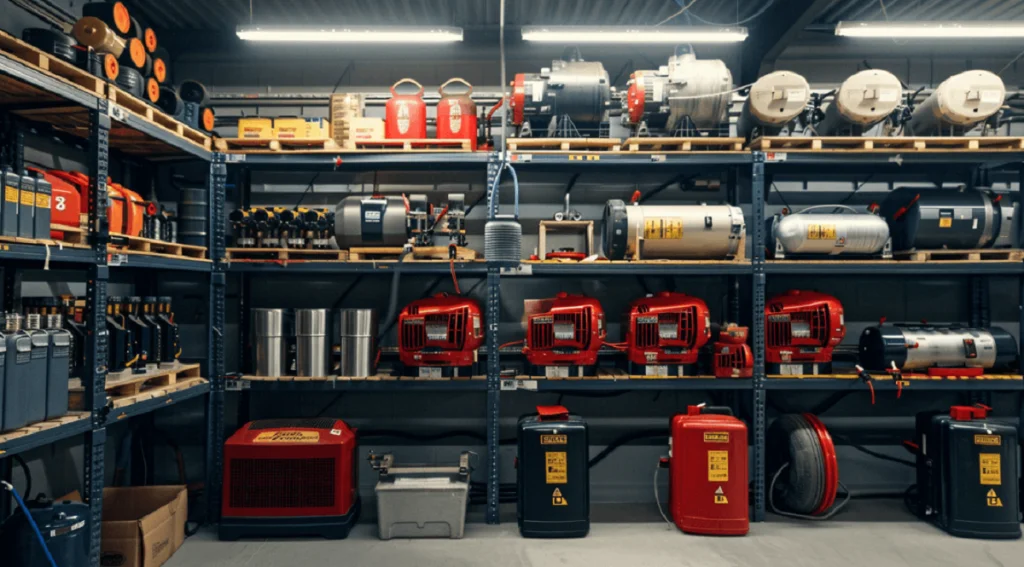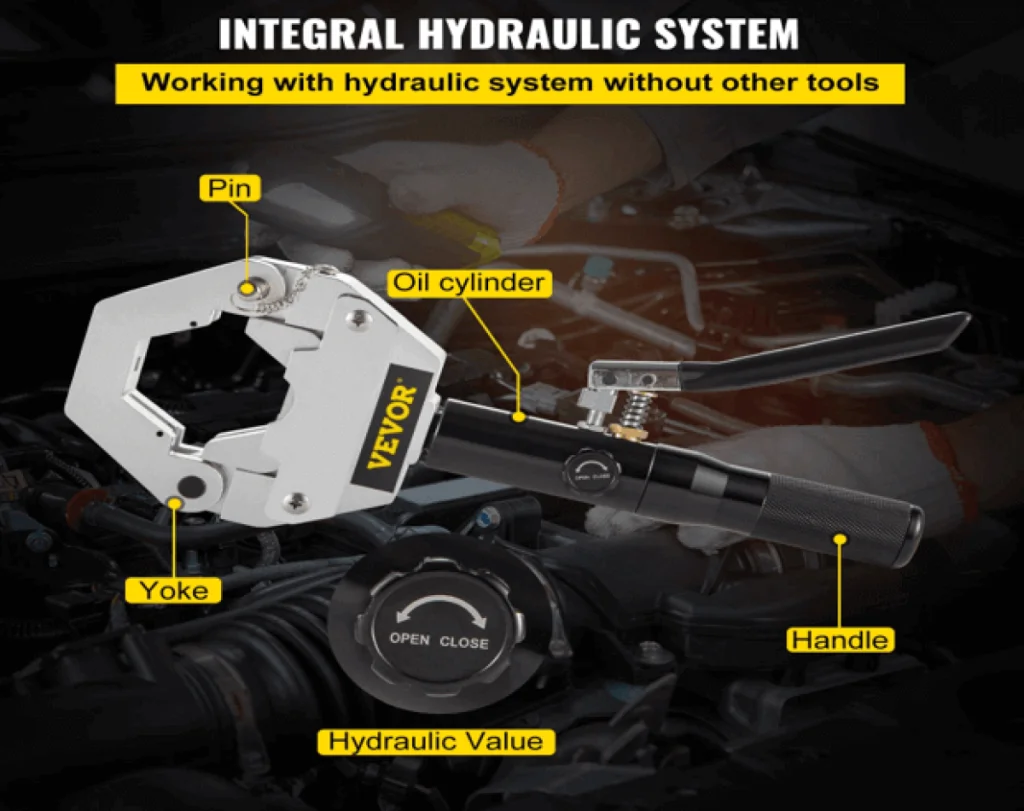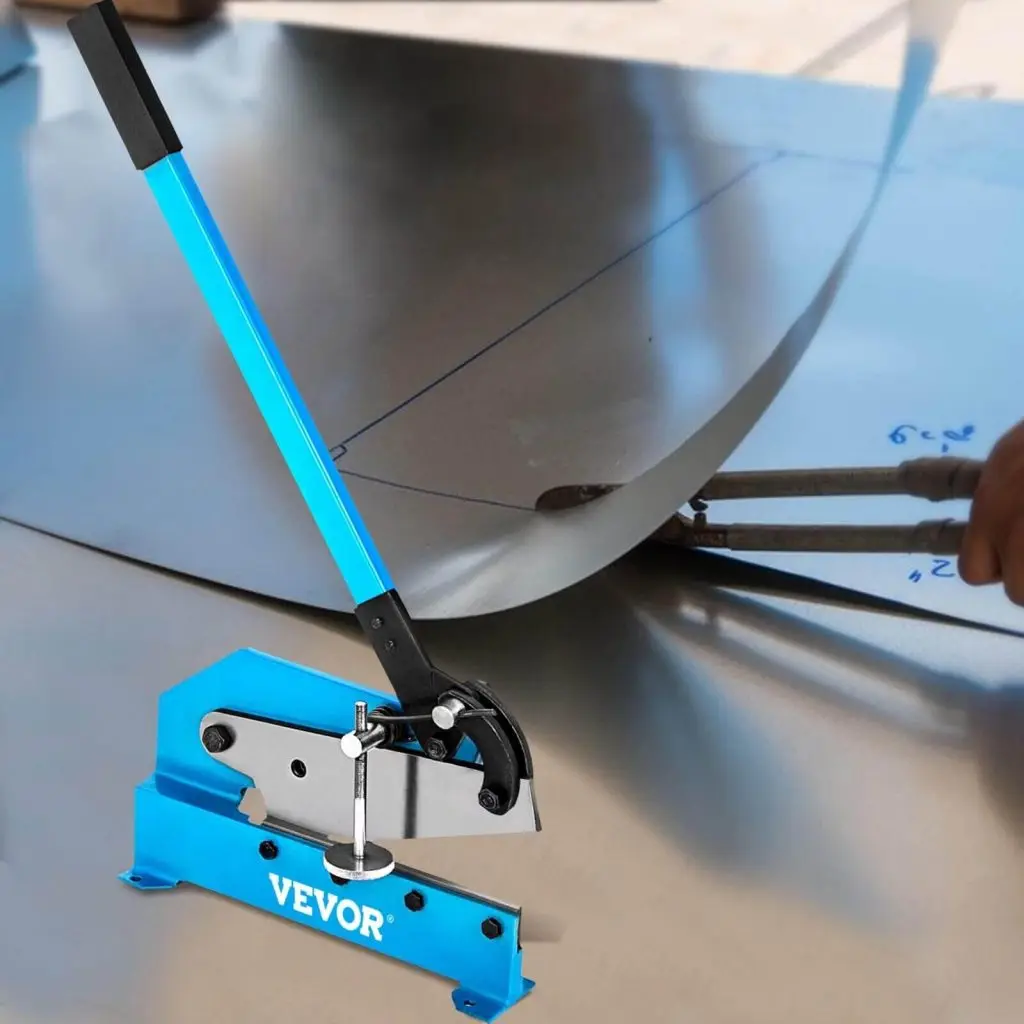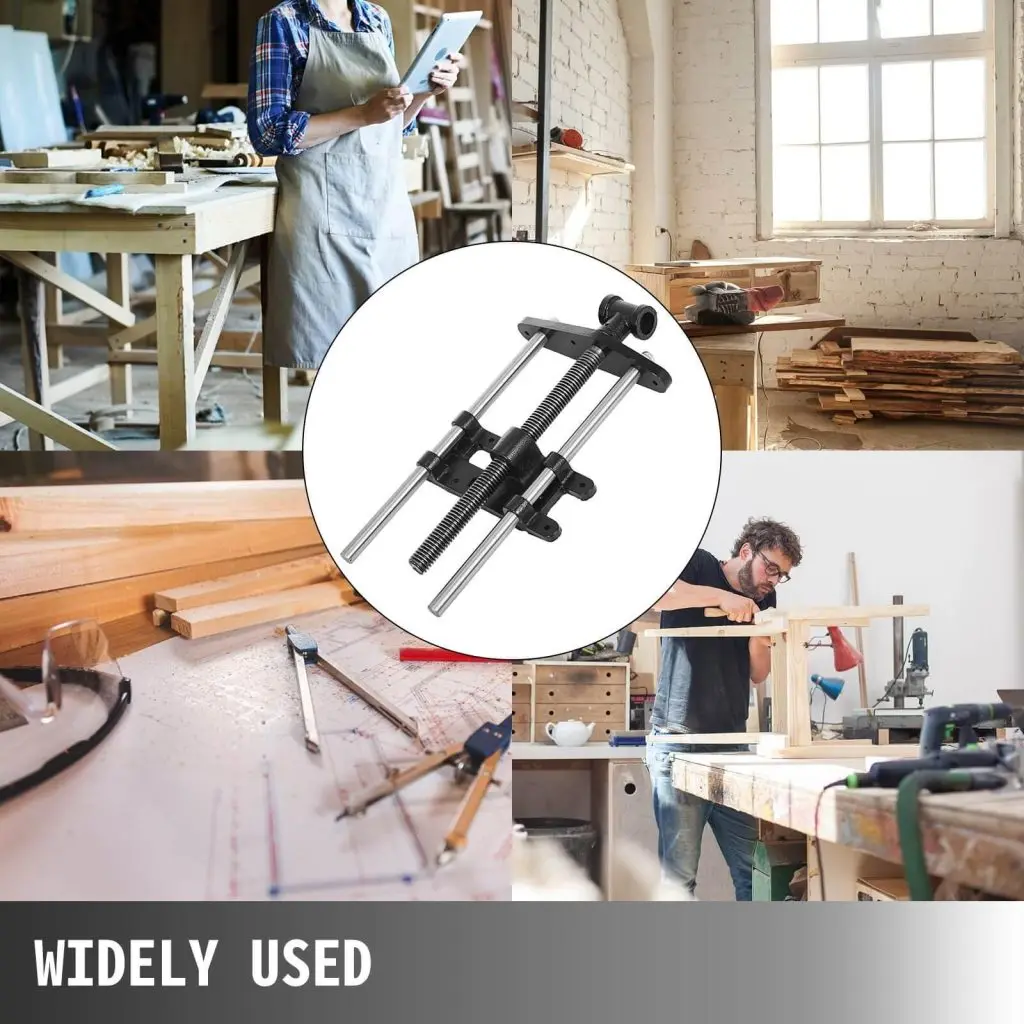Imagine you are working on a project and your air compressor stalls, leaving you annoyed and unable to complete the task. In this situation, having the right tools will make the difference between a smooth operation and a very irritating one. This is where understanding SCFM and CFM comes in.
According to market research, the global industrial air compressor market is expected to surpass around $62.72 billion by 2032, this means there are hundreds of products from several manufacturers in the market. So, choosing an appropriate compressor and knowing its SCFM and CFM rating is important. SCFM and CFM tell you how much air a compressor can produce. You want to find the best match for your needs, not just the cheapest or most popular option.
Among the several alternatives in the market, VEVOR Air Compressors stand out. VEVOR Air Compressors are widely recognized for their splendid performance and high SCFM and CFM ratings. They serve numerous purposes and ensure a steady supply of compressed air. This article will help you make informed decisions and pick a compressor that flawlessly suits all your tasks.
Table of contents
Understanding the Basics of Air Compressor Ratings
Before we get into the specifics of SCFM and CFM, let’s lay a solid foundation. In this section, we examine the definition of each term and how it affects the performance of your air compressor.
What is CFM?
CFM stands for Cubic Feet per Minute. It simply indicates the flow rate of the air compressor or how much air the machine can produce at a given pressure. Specifically, air flow rates expressed in CFM represent the rates decided under actual global conditions including actual temperature and pressure.
What is SCFM?
SCFM stands for Standard Cubic Feet per Minute. Unlike the CFM, the SCFM measures airflow under a set of parameters, typically 36% relative humidity, 68°F temperature, and 14.7 psi pressure. This makes it viable to evaluate different air compressors irrespective of operating situations.
SCFM vs. CFM: Explaining the Difference
Choosing the right air compressor requires an understanding of the subtle differences between SCFM and CFM. While both metrics measure airflow, the processes differ. This section will explain the technical differences between these two, providing some practical workshop applications.
The Technical Divergence
CFM represents the amount of air the compressor supplies at a given pressure. This is usually measured at the outlet where you connect your tools. Consider it the “real world” breathing capacity of your appliance.
Manufacturers often provide CFM ratings (e.g., 5 CFM at 90 PSI) with a specification of their pressure value. This means that at 90 pounds per square inch of pressure, the compressor can provide 5 cubic feet of air every minute. Standard Cubic Feet per Minute, or SCFM, uses a more methodical technique. It ensures a fair comparison of several air compressors by measuring airflow under defined conditions.
Practical Implications in the Workplace
The variations between SCFM and CFM impact your air compressor’s operation in different conditions. Let’s have a look at a few real conditions:
Impact of Height
With height, air pressure decreases. This translates to a drop in air density and a reduced CFM (real airflow), even with a compressor that has a high CFM at sea level. This is where SCFM comes in handy. This density reduction is balanced by a high SCFM air compressor. It ensures that it can deliver adequate airflow to correctly power your equipment, even at high altitudes.
Effect of Temperature
Higher running temperatures also can result in a drop in CFM, just like altitude does. This is due to the compressed air’s reduced density caused by further heating at some stage in operation. Once again, having a high SCFM score is best here. It facilitates the compressor to keep up sufficient airflow even in warm conditions.
Consistent Performance Across Environments
If you plan to apply your air compressor across different temperatures and altitudes, you should pay close interest to the SCFM. Knowing that compressors with high SCFM rankings can offer reliable airflow in any working state of affairs gives you peace of mind.
Significance of SCFM and CFM in Selecting an Air Compressor
Now that we understand SCFM and CFM, let’s look at how they play a function in selecting the right air compressor for you. Here’s how these ratings help you to make the right choices:
How to Calculate SCFM and CFM for Your Needs
The key lies in identifying the SCFM requirement of your most demanding tool. For best results, most manufacturers specify the necessary SCFM. Here is a simplified guide:
Decide which tool is the most demanding: Choose the tool that will be used the most or requires the most airflow first (e.g., impact wrench, sander).
Verify the SCFM requirement for the tool: Check the tool’s manual or the manufacturer’s specifications on the device. The recommended SCFM for its operation should be written there.
Matching Your Tools with the Right Compressor
For the best result, choose a compressor with an SCFM rate that matches or slightly exceeds your most demanding equipment specifications. While it may be tempting, a compressor with an SCFM rating a lot higher than your needs, is not ideal. Overkill compressors are less energy-efficient and way more expensive.
While SCFM provides a more accurate representation of a compressor’s capabilities, CFM ratings can still be helpful for specific applications. If you’re using your compressor for short bursts with low-demand tools, a CFM might suffice. However, for continuous use or high-demand tools, choose SCFM for a more reliable performance.
Why VEVOR Air Compressors Stand Out
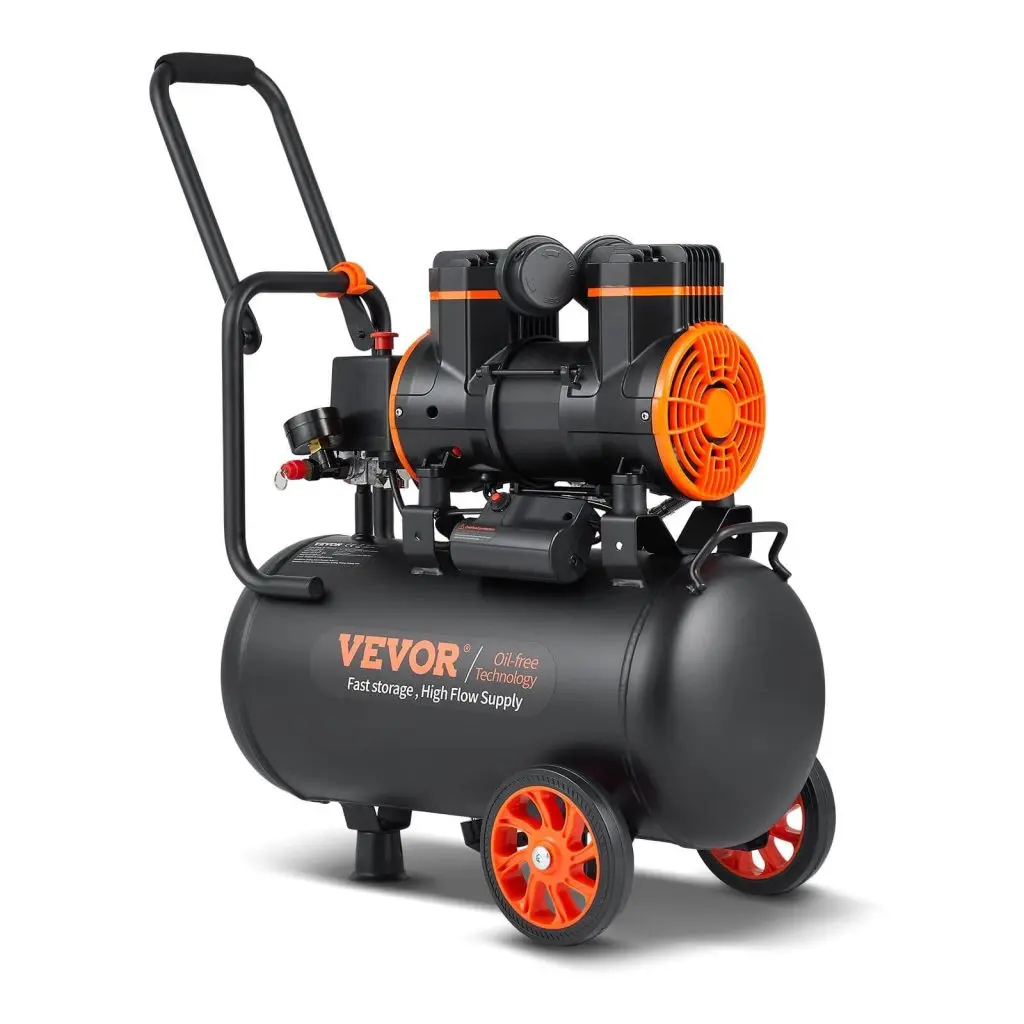
Among the several options available in the current market, VEVOR compressors stand out. VEVOR delivers exceptional performance and versatility with its models of compressors. Here, we’ll explain why VEVOR air compressors are generally considered better than the competitors.
Superior SCFM and CFM Ratings
VEVOR compressors have excellent SCFM and CFM ratings. This means they have a guaranteed ability to deliver the right airflow required to power even the most demanding instruments. No more struggling with sluggish performance or frustration due to insufficient air pressure.
Versatile and Efficient Performance
VEVOR air compressors are made to tackle various tasks. For instance, the VEVOR 80 Gallon Air Compressor can power anything from impact wrenches and sanders to nail guns and paint sprayers, thanks to its exceptional SCFM and CFM ratings. The compressor works best for tire inflation, auto repair, spray painting, nailing woodwork, and other pneumatic and air tool applications like nail guns, spray guns, and pneumatic screwdrivers. You get a reliable workhorse for all of your projects.
Other Essential Air Compressor Ratings to Consider
Although understanding airflow is largely dependent on SCFM and CFM, a compressor’s total performance is also influenced by other elements. Below is a summary of some additional ratings and metrics that influence the overall performance of an air compressor.
PSI, HP, and Duty Cycle
PSI (Pounds per Square Inch) represents the air pressure the compressor can deliver. For jobs like driving high-pressure nails or operating impact wrenches, a higher PSI is necessary. To guarantee compatibility, consider the highest PSI that your most demanding tool requires.
The motor’s power output is indicated as HP (Horsepower), which affects the compressor’s capacity to produce compressed air. HP represents the “muscle” that drives the airflow. A higher HP impacts energy usage, even though it often translates to higher CFM and PSI ratings. Select a compressor with enough horsepower to meet your needs without going overboard.
The duty cycle determines the ideal ratio of on/off time for the compressor to avoid overheating. The duty cycle is expressed as a percentage (e.g. 50%/50%). When the compressor runs at 50% duty cycle, it can run for 30 minutes and then needs another 30 minutes to cool down before continuing. Consider how you will use the compressor before buying one. If you will be using it repeatedly in short bursts, a lower duty cycle will be sufficient.
The Importance of Gallons
The air tank’s capacity is measured in gallons. It impacts how well your air compressor works. More compressed air is stored in a larger tank. This results in better maintenance, reduced wear and tear on the compressor, and smoother performance. For tasks requiring short bursts of air, a smaller tank might suffice.
FAQs on SCFM vs. CFM
Do I always need to consider SCFM when choosing an air compressor?
Yes. This is even more important when you are using high-demand tools, or when working in environments with extreme temperatures or altitudes.
What if my compressor’s SCFM rating is lower than my equipment needs?
This can cause performance issues. If the compressor cannot meet the airflow requirements, the equipment may run slowly or overheat. Choosing a compressor that matches or slightly exceeds the SCFM rating of your equipment is always advisable.
Is a higher SCFM rating always better?
No. Using a compressor with a much higher SCFM rating than necessary is an overkill. Such a situation will require you to spend more on electricity, which will cost you more.
Conclusion
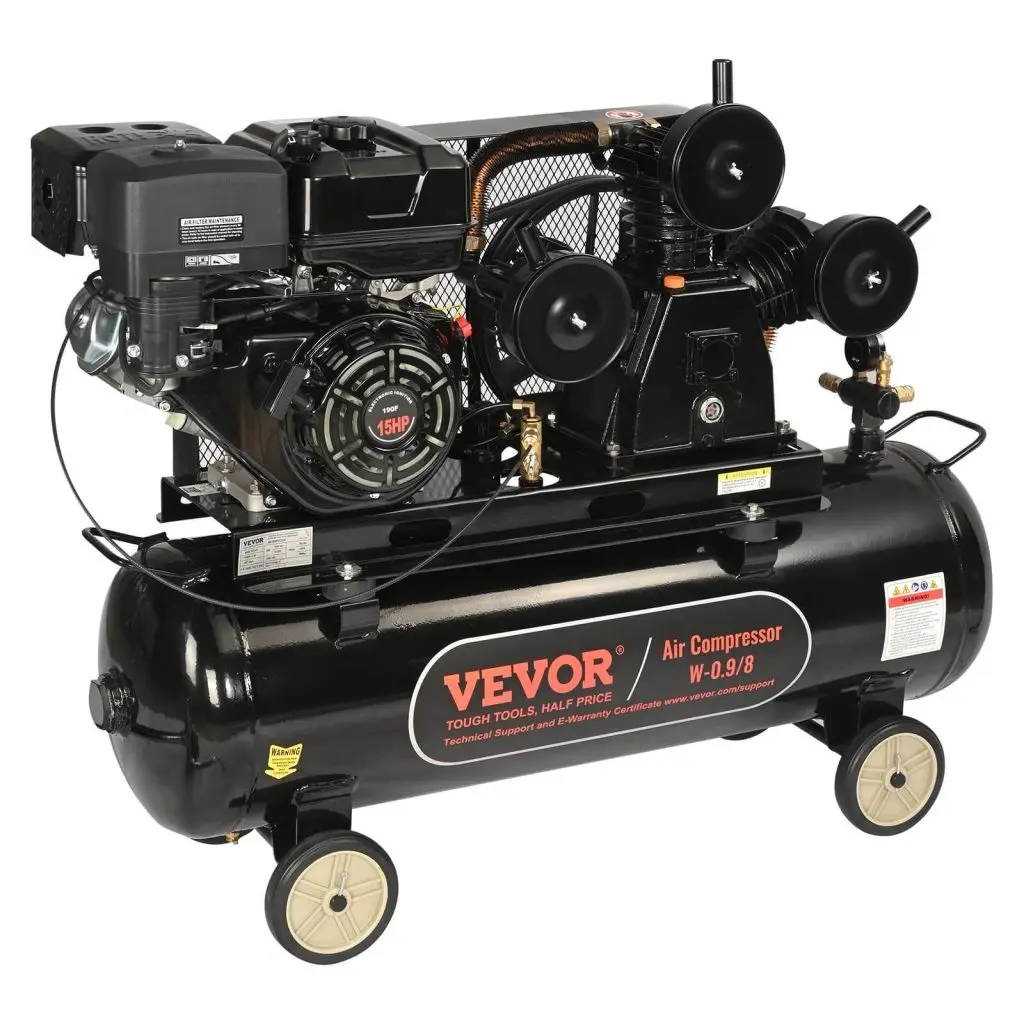
Knowing the difference between SCFM and CFM ratings will help you choose which air compressor will work best for your projects. Air flow ratings guarantee that your compressor provides enough “breath” to keep your equipment running smoothly.
In the end, buying a quality air compressor, like the ones from VEVOR will go a long way in helping you achieve the perfect results with your projects. VEVOR Air Compressors are unique in delivering exceptional performance and flexibility. They ensure effective tool performance in various applications with their remarkable SCFM and CFM ratings.
Apart from being reliable, the VEVOR models are also renowned for their durability and affordability option, since equal emphasis is placed on efficiency and raw power. We advise that you browse the VEVOR website today to explore their collection of air compressors and choose the one that meets your project needs.

